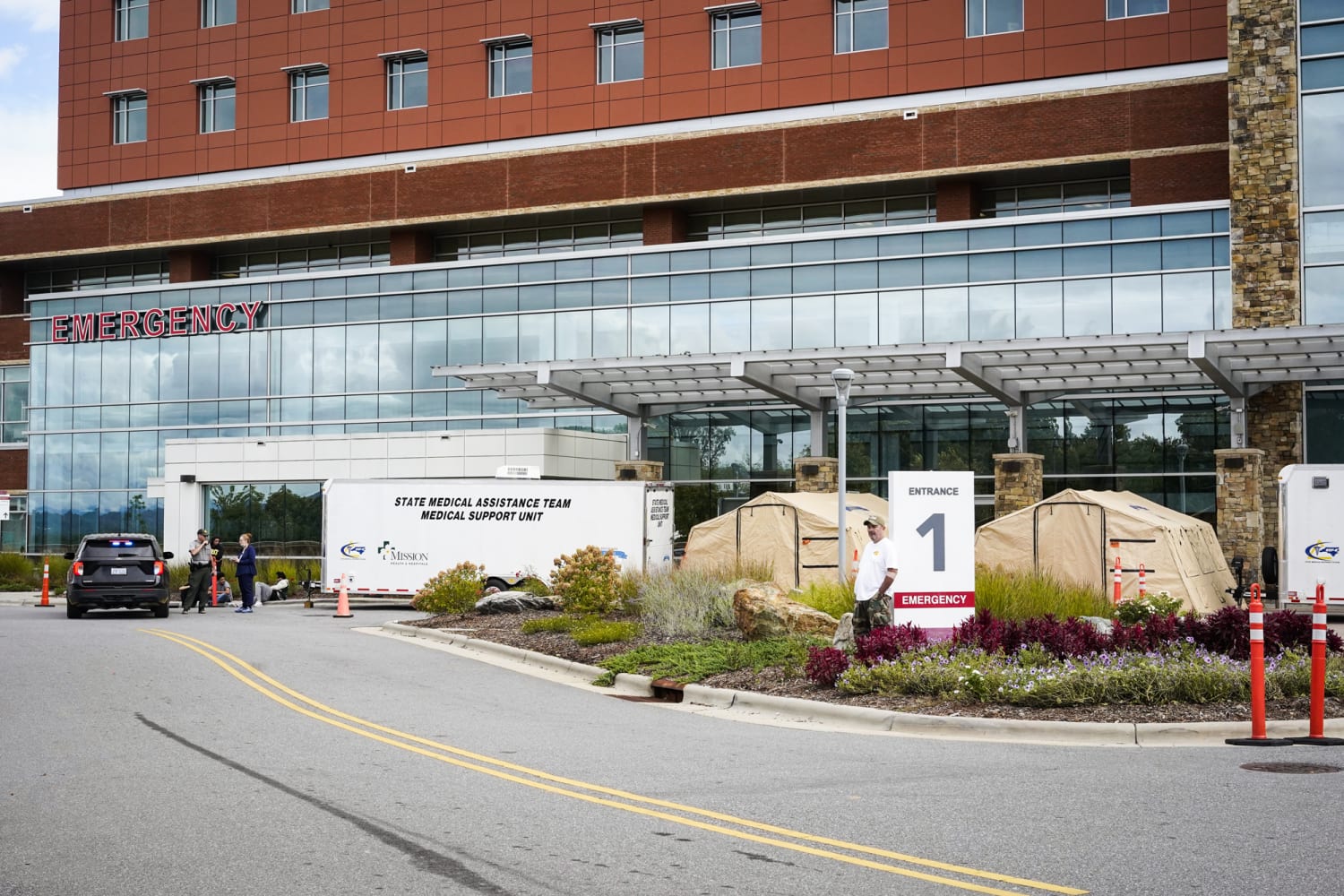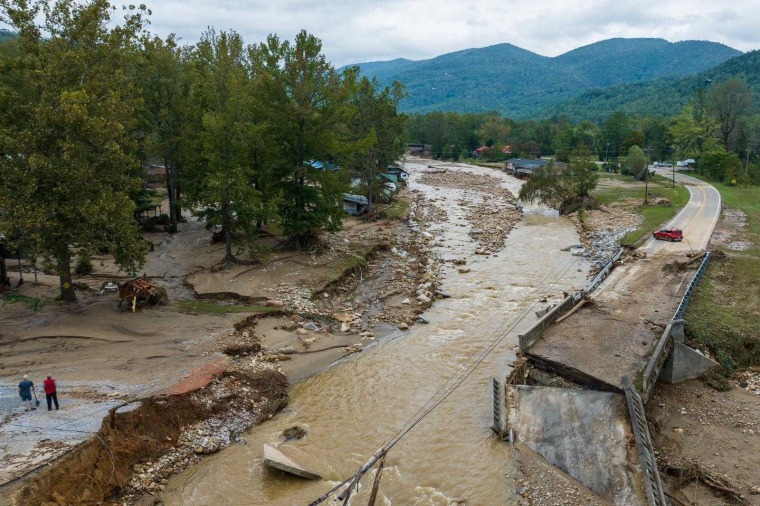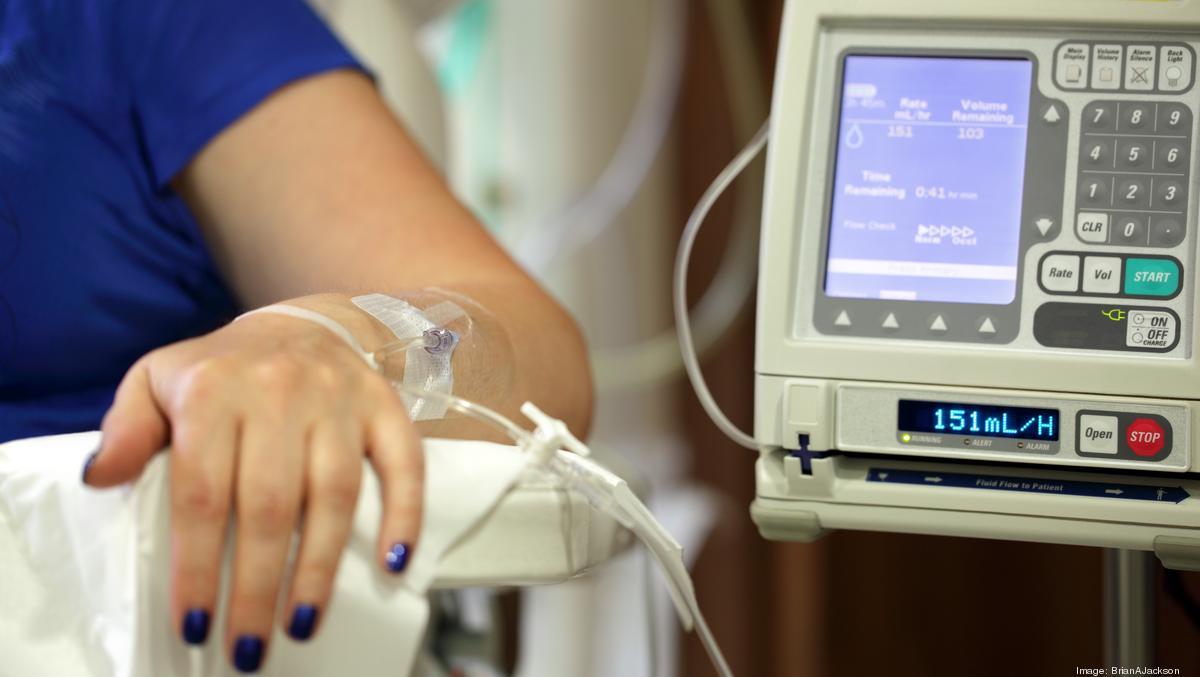Following Hurricane Helene’s impact on a vital manufacturing facility owned by the nation’s largest supplier, hospitals around the United States are taking precautions to preserve their IV fluid supply.
Baxter International, a medical technology company responsible for making IV fluids for most U.S. hospitals, said Sunday that it would temporarily close production at its North Cove, North Carolina-based facility because of flooding from Helene, raising concerns about a potential nationwide shortage.

Drugs or water containing electrolytes can be infused directly into a patient’s bloodstream via IV fluids. They’re also crucial during surgery, when a person is unable to eat or drink, to keep them hydrated.
Baxter also provides specialized fluids, such as peritoneal dialysis fluid, which helps patients with renal failure filter waste from their blood, as well as irrigation fluids, used during operations to clean or flush wounds.
In the United States, there are four main producers of IV fluids; Baxter holds the largest share of the industry at over 60%.
Mass General Brigham in Boston, which purchases over 100,000 liters of IV fluid from Baxter each month, mostly sources from this firm.
Dr. Paul Biddinger, chief readiness and continuity officer at Mass General, stated in a Thursday teleconference with reporters that the health system got a letter from Baxter informing it that just 40% of its regular supply from the manufacturer would be available to it because of the temporary closure.
The letter forced the health system to take action to preserve its supply, which included, in certain situations, offering patients alternatives like Gatorade or plain water rather than IVs.
Although Biddinger acknowledged that it’s “too early to tell” what steps the healthy system would need to take in the event that the supply crisis lasts for a few more weeks, it is thinking about moving to different suppliers.
According to Biddinger, “patients are still receiving IV fluids when they need them.” “We are closely monitoring this incident to determine how long it may last, how long we may need to conserve, and making sure we identified all areas of our enterprise where services are affected.” “We are continuing normal medical services but emphasizing conservation.”

Difficult to bridge the divide
Baxter stated that it does not yet have an estimated timeframe for when operations would resume in an online statement that was posted on Thursday.
The firm claimed that one of the issues is that the storm destroyed bridges leading to its location, which restricts transportation in and out.
Baxter is collaborating with the Department of Health and Human Services as well as the agency’s Administration for Strategic Preparedness and Response to evaluate the damage and support the recovery process.
“Reducing supply chain disruptions that may result from damage to the facility and surrounding infrastructure” is the government’s first priority, according to an HHS official.
The representative stated that two other significant IV fluid producers in the United States, in addition to Baxter, are also making efforts to enhance supplies.
A representative for the FDA stated, “The agency is in communication with Baxter regarding the effects on the goods produced at the site and will keep working with FEMA to support the business in its facility cleanup efforts.”
According to a business representative, B. Braun Medical, which holds around 23% of the IV fluids market, is one of the firms trying to boost supplies.
According to the spokeswoman, the business wants to boost the supply of its “hospital workhorses” or “most critical products,” which include lactated ringers, sterile water, and large-volume bags (500–2,000 milliliters) containing sodium chloride.
Additionally, B. Braun Medical is employing new staff in anticipation of operating two of its sites around-the-clock in the upcoming weeks. It has also considered importing goods from overseas, but the problem is made worse by the closure of ports along the East and Gulf coastlines due to the port strike.
Even so, it will be challenging to fill the void that Baxter left behind.
A representative for the business stated in a statement, “We anticipate that the production outage at Baxter’s North Cove plant will result in major constraints on the U.S. supply of IV fluids.”
Another provider of IV fluids, ICU Medical, stated that it is keeping an eye out for any possible spikes in demand.
Harrison Richards, a spokesman, stated that the business has “already taken necessary steps to increase production to help meet market needs.”
Hospitals get ready
Hospitals are making efforts to ensure that patients continue to receive the IV fluids they require in the meantime.
The New Jersey-based RWJBarnabas Health stated that as it evaluates the supply impacted by Baxter, it is implementing “appropriate conservation measures” throughout its health system.
“At present, there is no influence on patient care,” stated RWJBarnabas spokesman Carrie Cristello. “We’ll keep a careful eye on the situation,”
The Baxter shutdown also had an impact on Oregon Health & Science University Hospital, which released a statement saying it is informing its community of any potential changes to patient care, research, or educational initiatives.
In addition, the hospital is assessing each patient to see if they can stop receiving continuous IV fluids and is also employing oral hydration options where feasible.
The supply chain team at Northwestern Medicine in Illinois noted that they are also talking about conservation initiatives.
“We believe that this will be a protracted problem,” a representative named Jenny Nowatzke stated.






